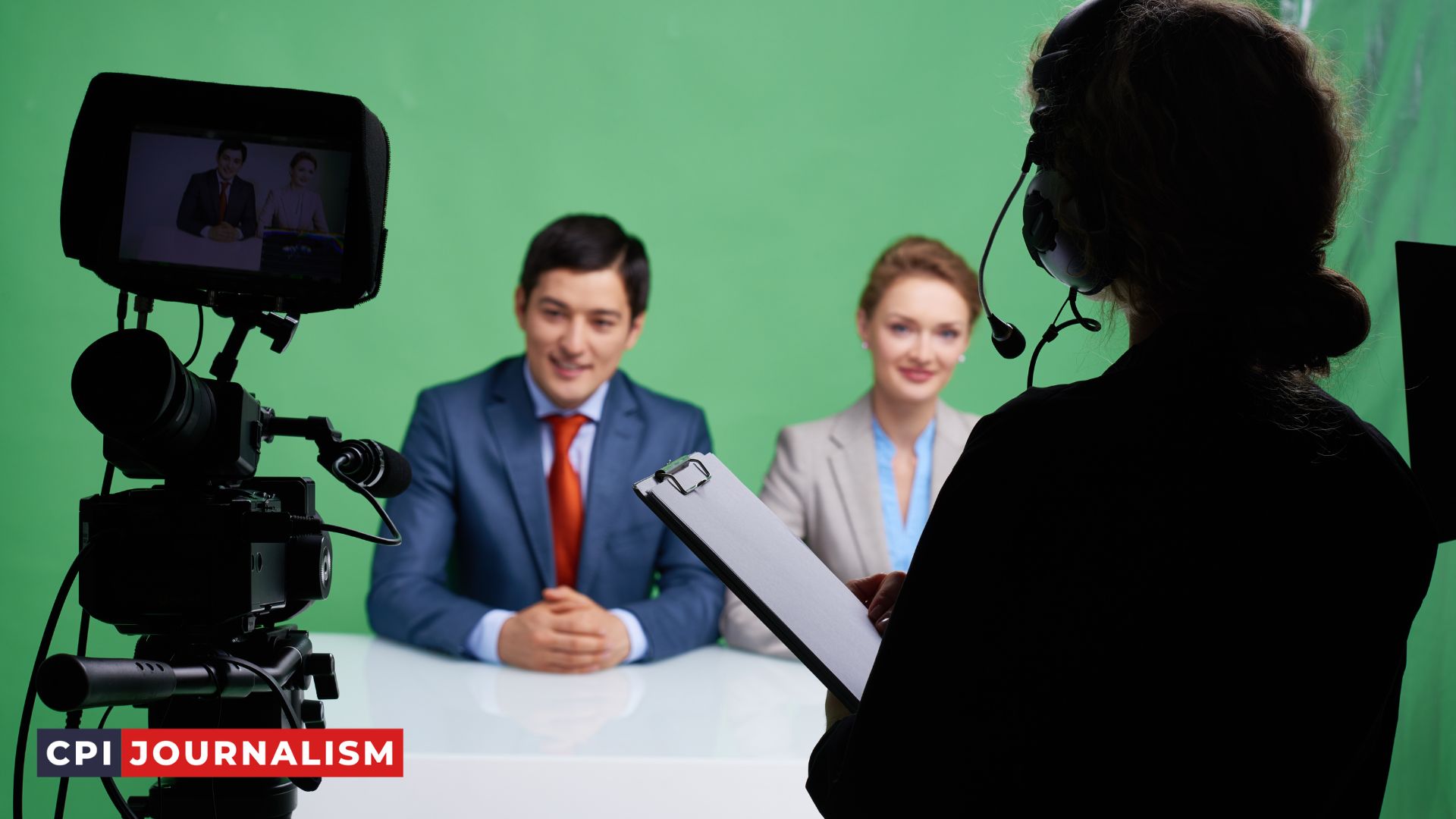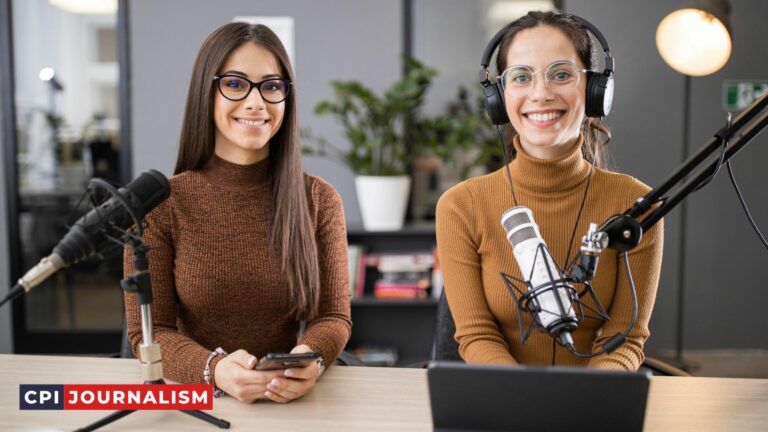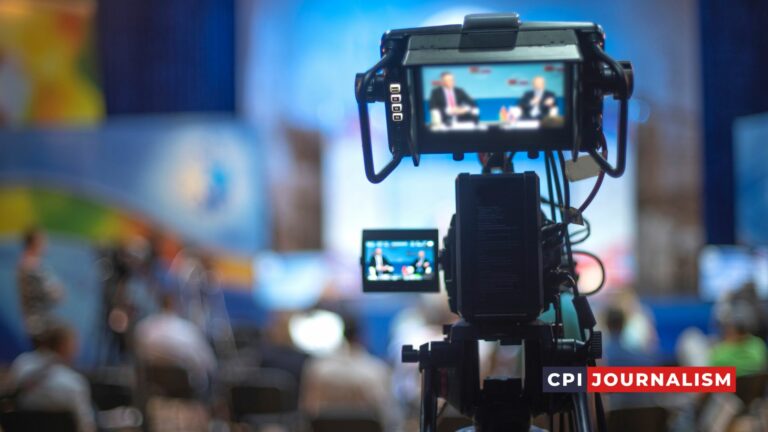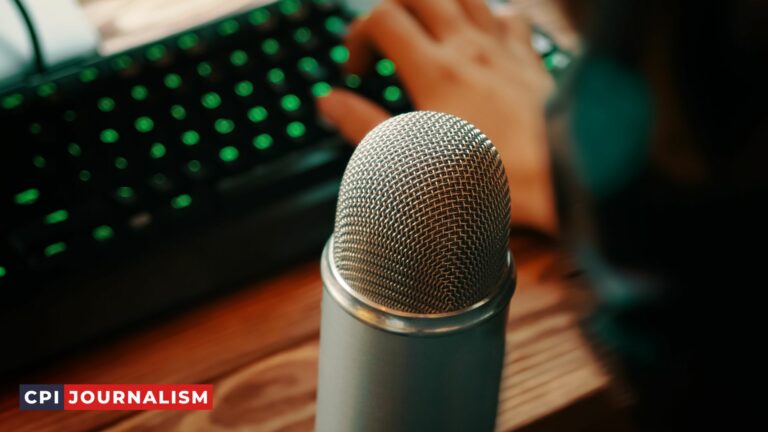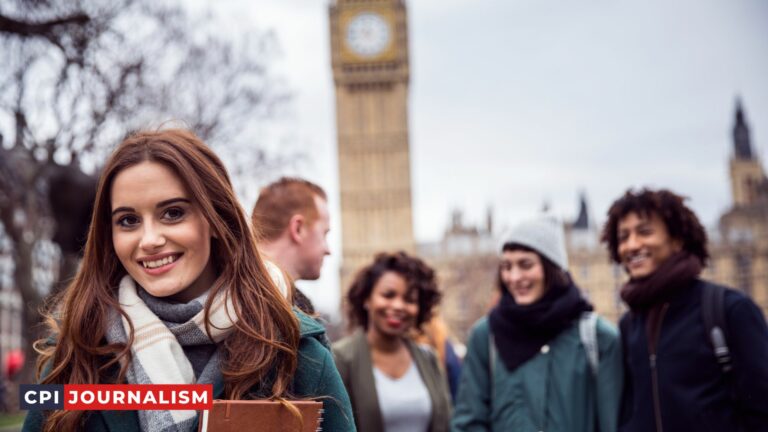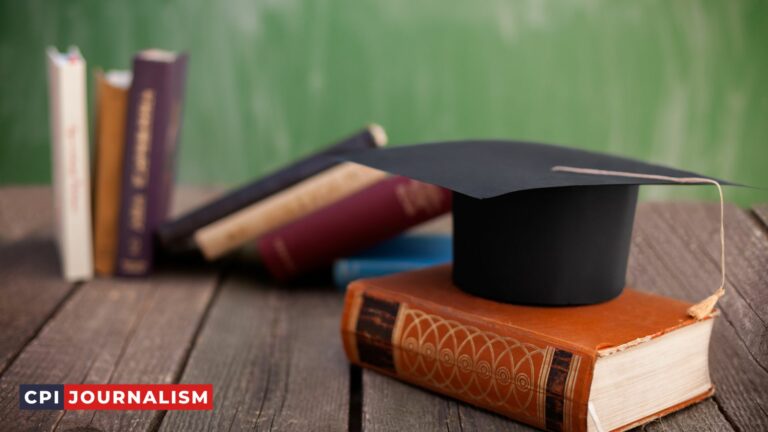How Do Broadcast Journalists Approach Interviews With Sources And Subjects In A Story?
As an experienced broadcast journalist, I have had the pleasure of conducting interviews with a variety of sources and subjects for my stories.
I understand that interviews are a crucial component of broadcast journalism and have seen firsthand how important it is to approach each interview with a plan.
In this article, I will share my insights into how broadcast journalists approach interviews with sources and subjects in a story.
I will discuss the importance of preparation, good questioning techniques, and how to create a comfortable atmosphere. With these helpful tips, upcoming journalists can gain the confidence they need to make the most of their interviews.
A. Overview of Interviews in Broadcast Journalism
Interviews are one of the most essential tools in broadcast journalism, as they provide firsthand accounts of a situation and offer viewers a chance to hear from the people involved in a story.
When conducting interviews for broadcast journalism, it is important for journalists to prepare thoroughly and have a clear understanding of their goals and objectives before beginning the interview.
Broadcast journalists approach interviews with sources and subjects in a story with a professional, yet personable demeanor.
In order to gain the trust of the interviewee and encourage them to open up and provide meaningful responses, it is essential for the journalist to build a rapport with the interviewee.
This may involve making small talk, asking open-ended questions, and displaying active listening skills.
The journalist should also be prepared to ask nuanced follow-up questions that probe deeper into the interviewee’s responses. This helps the journalist to gain a better understanding of the interviewee’s thought process and uncover any hidden perspectives or information.
Additionally, the journalist should be aware of any cultural, religious, or political sensitivities that may be present in the interview, and ensure that the questions asked are appropriate and respectful.
Finally, the journalist should be mindful of the time constraints of television broadcasts when conducting an interview. This means that the journalist should be prepared to ask the most important questions first, and to get the answers they need quickly.
In some cases, the journalist may need to cut the interview short if it has gone on for too long, or if the content is not suitable for broadcast.
By following these guidelines, broadcast journalists can ensure that their interviews are conducted in a professional and respectful manner, and that all relevant information is gathered in a timely manner.
B. Benefits of Interviews in Broadcast Journalism
Interviews are an invaluable tool for broadcast journalists, as they provide an opportunity to gain first-hand perspectives and experiences from sources and subjects of a story.
There are numerous benefits to conducting interviews when reporting for broadcast news, including the following:
1) Gain Insights: Interviews give broadcast journalists the chance to gain unique and detailed insights into a story. Through interviews, journalists can gain access to information and perspectives that would be difficult to acquire through other means.
2) Establish Authenticity: Interviews provide an opportunity to establish authenticity, as they enable journalists to put a face to the story. Interviews also provide a platform for sources and subjects to speak directly to the audience and establish trust.
3) Create Connections: Interviews enable broadcast journalists to build relationships with sources and subjects, which can be beneficial both during and after reporting. Establishing connections with sources can help journalists to gain access to more information and better understand a story.
4) Enhance Storytelling: Interviews provide a platform for broadcast journalists to tell stories in a more engaging and meaningful way. Through interviews, journalists can create a compelling narrative and bring a story to life.
In conclusion, interviews are an essential tool for broadcast journalists and provide numerous benefits in terms of gaining insights, establishing authenticity, creating connections, and enhancing storytelling.
II. Preparing for an Interview
As a broadcast journalist, it is essential to be well-prepared for an interview in order to ensure that you get the most out of it.
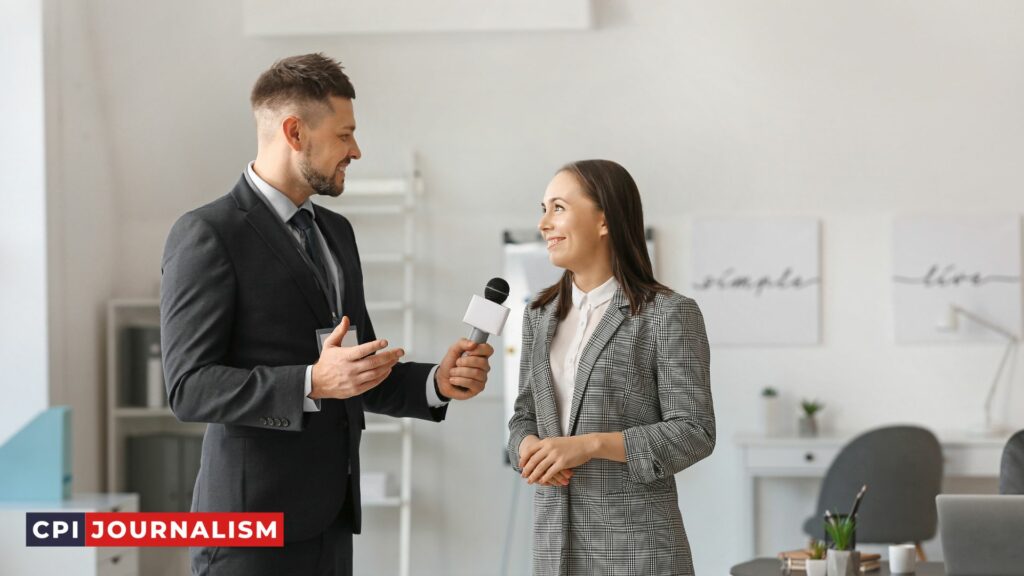
Here are some tips for preparing for an interview:
1. Research the Subject Matter: Before you interview a source or subject, do some research on the topic you are covering. This will help you to ask informed questions and better understand the context of the story.
2. Prepare Your Questions: After researching the topic, prepare a list of questions you would like to ask your source or subject. It is important to have a clear focus and to ask questions that are relevant to the story.
3. Set Up the Logistics: Make sure to arrange a time and place to meet with your source or subject that is convenient for both parties. If the interview is to be conducted over the phone or through a video call, make sure to set up the necessary technology ahead of time.
4. Establish Rapport: Establishing a good rapport with your source or subject is essential for any successful interview. Take the time to introduce yourself and make some small talk before jumping into the questions.
These are some of the most important tips for preparing for an interview as a broadcast journalist. With proper preparation, your interviews will be both informative and engaging.
A. Researching the Subject
As a broadcast journalist, it is essential to have a thorough understanding of the subject before conducting an interview. This means doing the necessary research to gain a comprehensive understanding of the topic.
It is necessary to be aware of the subject’s background, their accomplishments, and how their story fits into the broader context. Additionally, it is important to be familiar with the recent developments in the subject’s life, especially if the interview is about a current event.
To ensure that the interviewee is comfortable and relaxed during the interview, it is also important to do research on the person.
This is especially true if the interviewee is a public figure or celebrity. Knowing their background and what they are passionate about can help the interviewer establish a rapport with the interviewee, making for a more relaxed and open atmosphere.
Finally, research should be conducted on the other sources of information related to the topic. This includes reading up on relevant news articles, books, and other reports.
Doing so can help the interviewer form a comprehensive picture of the topic and form questions that will bring out the best answers from the interviewee.
By conducting adequate research on the topic, the broadcast journalist can ensure that the interview will be informative, accurate, and effective.
B. Developing Questions
Developing questions is a vital part of the interview process for broadcast journalists. Asking the right questions can help uncover important information and help you craft a compelling story.
Here are some tips for developing effective questions for your interviews:
1. Review and Research: Before you interview someone, you should review and research the topic to become familiar with the facts and important details. This will help you develop informed questions that can help you get the information you need.
2. Listen Carefully: As you listen to your source or subject, pay attention to their answers. This can help you craft follow-up questions that can dig deeper into the story.
3. Ask Open-Ended Questions: Open-ended questions are questions that do not have a yes or no answer. These types of questions can help you uncover more information, as they require the person to explain their thoughts and feelings.
4. Identify Areas of Interest: As you review and research the topic, identify areas of interest that you would like to explore further. This will help you craft questions that can get to the heart of the story.
5. Think Creatively: Think outside the box and come up with creative questions that can help you uncover unique perspectives and insights.
By following these tips, you can develop effective and meaningful questions that can help you get the information you need for your broadcast story.
C. Establishing Rapport
As a broadcast journalist, it is important to build rapport with your sources and subjects in a story. Establishing trust and rapport with those you are interviewing is essential to getting the information you need.
It is important to create an atmosphere of openness, where your source or subject is comfortable talking to you.
In order to do this, it is important to make sure you appear friendly and approachable. Greet your source or subject warmly, use their name often, and be sure to maintain eye contact. Show respect and appreciation for the time that they are taking to speak with you.
It is also important to take the time to listen to your source or subject carefully. Show that you are interested in what they have to say by nodding and responding positively to their comments. Be sure to remain non-judgmental and open-minded.
Finally, it is important to remain professional and maintain the conversation on topic. Show your source or subject that you are there for the purpose of gathering information by asking relevant questions and staying focused on the task at hand.
By taking the time to establish rapport with your sources and subjects in a story, you will be able to acquire the information needed to create an engaging and informative broadcast.
D. Preparing The Interview Space
For a successful interview, it is essential that the space for the interview is well-prepared in advance. As a broadcast journalist, it is important to take the time to assess and consider the environment in which you will be conducting the interview.
First and foremost, the space should be comfortable for both the interviewer and the interviewee. Ensure that the room is sufficiently lit and that the temperature is comfortable. It is also important to have enough seating to accommodate all participants.
The layout of the space is also important. Make sure that the interviewee is comfortable and not in a position that could make them feel intimidated or uncomfortable. The seating arrangement should be designed to facilitate eye contact and to encourage the interviewee to feel open and relaxed.
The audio equipment should also be tested and ready to go before the interview begins. Make sure that the audio levels are set correctly, and any microphones and recording devices are functioning properly.
Finally, ensure that there are no distractions in the room that may interfere with the interview. This includes removing any cell phones, computers, or any other electronic devices.
Additionally, be sure to inform any staff or other people in the vicinity that the interview is taking place and that their presence should not be disruptive.
By taking the time to properly prepare the interview space, broadcast journalists can ensure that the interview goes as smoothly as possible, creating the best possible environment for the interviewee to share their story.
Conducting The Interview
The most important part of any broadcast journalist’s job is conducting interviews with sources and subjects in a story. As an experienced journalist, I understand the importance of having an effective interviewing technique.
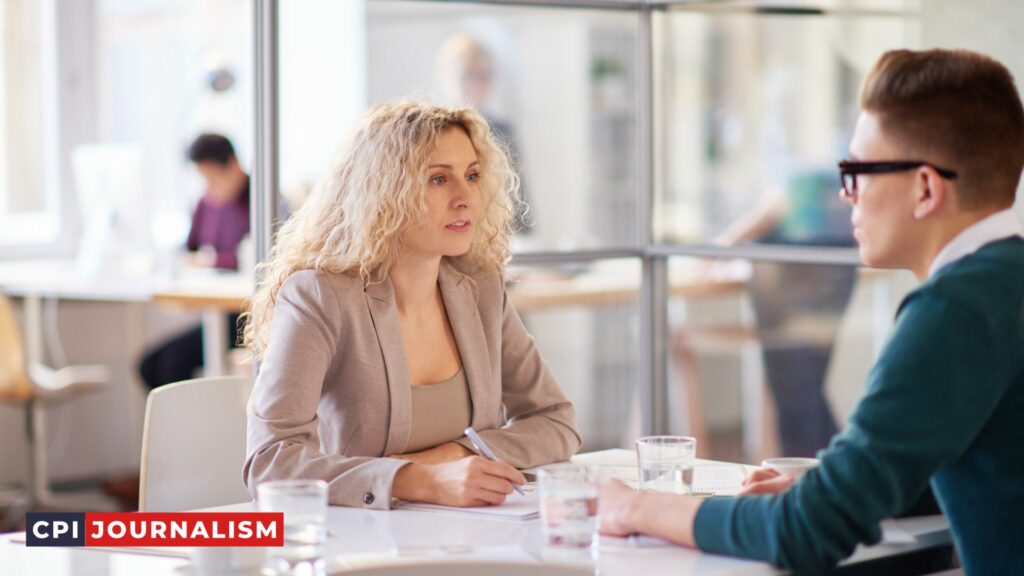
Here are some tips to help you get the most out of your interviews:
1. Set the tone: Ensure you have a friendly and professional demeanor when conducting your interview. This will help make your subject feel comfortable and willing to open up.
2. Listen carefully: Make sure to listen carefully to what your subject is saying. This will help you to draw out valuable insights and information from your interview.
3. Ask open-ended questions: Open-ended questions are key to getting the most out of an interview. Avoid yes or no questions and instead ask questions that require more thought and detail.
4. Follow up: Make sure to follow up on any leads or insights that you get from your interview. This will help to ensure that you have all the information you need for your story.
5. Take notes: Taking notes during your interview is essential. This will help you to remember all the important details that you need to include in your story.
6. Be prepared: Before you even start your interview, make sure you are prepared. Research your subject and have a list of questions ready to ask.
These tips will help you to become a better interviewer and ensure that you get the most out of each interview. With practice and dedication, you will soon become an expert in the art of broadcast interviewing.
A. Setting the Tone
As a broadcast journalist, setting the tone of the interview is a critical step in the process of gathering information from your sources and subjects.
There are a number of factors to consider when setting the tone of the interview, such as the level of comfort of both the interviewer and the interviewee.
In order to create a comfortable environment, it is important to start by introducing yourself and providing a brief overview of the purpose of the interview. For example, “Hello, my name is [name], and I’m a broadcast journalist with [media outlet].
I’m here to learn more about your experience with [topic], and to get a better sense of your perspective on the issue.” This introduction will provide the interviewee with a sense of the purpose of the interview, as well as an idea of who you are.
It is also important to establish expectations for the interview. For example, you can let the interviewee know that the interview will be recorded and may be used on-air. This will ensure that the interviewee is comfortable with the process and is aware of the implications of the interview.
Finally, it is important to listen attentively and be open to the interviewee’s perspective. This will help to create an environment of trust and respect, which is essential for a successful interview.
By taking the time to set the tone of the interview, you will be able to ensure that the interview is both informative and comfortable for both you and the interviewee.
B. Asking Open-Ended Questions
Asking open-ended questions is an essential part of conducting successful interviews for broadcast journalism.
Open-ended questions allow for more detailed and in-depth responses from sources and subjects.
They encourage sources and subjects to provide more substantial and meaningful answers. Open-ended questions can also be useful for eliciting potential stories from sources and subjects.
When asking open-ended questions, reporters should strive to avoid leading questions, as they may bias sources and subjects into providing the desired answer. Instead, reporters should strive to ask as neutral a question as possible.
In order to ask effective open-ended questions, reporters should be prepared and have done their research ahead of time. Knowing what topics to ask about and what questions to ask can allow for more meaningful conversations with sources and subjects.
Asking open-ended questions can also be used as a way of drawing out more personal stories from sources and subjects. Asking questions about their motivations, opinions, and experiences can lead to interesting stories that can be used in the broadcast journalism piece.
Finally, reporters should be sure to leave room for sources and subjects to explain themselves. By asking open-ended questions, reporters can create a dialogue with sources and subjects that encourages more detailed and meaningful responses.
C. Listening And Clarifying
Listening and clarifying are two essential components of a successful interview in broadcast journalism. Listening is an essential skill that allows a journalist to understand the subject’s point of view and to gain insight into their ideas and opinions.
Clarifying questions can help to ensure that the journalist has a full understanding of the subject’s perspective.
When conducting an interview, a broadcast journalist should listen actively and take the time to ask clarifying questions. Listening actively means paying close attention to the subject and being mindful of their body language and tone of voice.
By taking the time to really listen to the subject, the journalist is more likely to gain a better understanding of the subject’s opinions and ideas.
In addition to listening, the journalist should also be prepared to ask clarifying questions. These questions should be asked in order to ensure that the journalist has a full understanding of the subject’s perspective.
Clarifying questions can also be used to help the subject expand on their ideas and provide additional information.
By taking the time to listen actively and to ask clarifying questions, the broadcast journalist can ensure that they have a complete understanding of the subject’s point of view. This will help to ensure that the interview produces the best possible results.
D. Maintaining Professionalism
Professionalism is a must for any broadcast journalist. Doing interviews with sources and subjects in a story requires a high level of professionalism.
First, it is important to establish a comfortable atmosphere for the interviewee. Interviewees should be given the opportunity to express their views without feeling pressure or intimidation.
Second, it is important to be respectful towards the interviewee and to make sure that their opinions are heard. All questions should be asked in a professional manner and the journalist should take the time to listen to the interviewee’s answers.

Third, it is essential that the journalist maintains their objectivity and neutrality throughout the interview. All questions asked should be unbiased and without judgement.
Finally, it is important to ensure that the interviewee is aware of their rights, such as their right to remain anonymous or their right to refuse to answer certain questions.
By following these guidelines, broadcast journalists can ensure that they maintain a high level of professionalism when conducting interviews with sources and subjects in a story.
E. Recording the Interview
As journalists, it is essential to have a reliable method of recording interviews with sources and subjects of a story. Recording the interview allows the journalist to have a physical record of the conversation, as well as an accurate reference to review and analyze the content of the story.
For broadcast journalists, it is important to consider the quality of the sound when recording interviews. It is best to use microphones that are designed to pick up sound from a distance, as well as a recorder that can capture the audio clearly.
The audio of the interview should be the main focus, so it is important to limit background noise and other distractions.
A great way to record audio for broadcast interviews is by using a digital recorder. This allows for the journalist to capture audio with high quality, as well as store it easily for future reference.
It also allows for the journalist to easily transfer the audio file onto a computer or other device, to be edited and adjusted.
The journalist should also consider the type of microphone they are using. It is important to have a microphone that is designed to pick up sound from a distance, as this will help to create a clear and accurate audio recording.
Overall, recording interviews is essential for broadcast journalists. It is important to use reliable methods of recording and to consider the quality of the sound. By doing this, the journalist can ensure that they have a clear and accurate audio recording of the interview, which will help them to create a successful story.
IV. After the Interview
Once the interview is completed, it is important for the broadcast journalist to take some time to reflect on the experience. Interviews can be emotionally draining, so it is important to give yourself time to relax and process what you have learned.
The broadcast journalist should review their notes and recordings as soon as possible. This allows them to clarify any questions they may have had during the interview and to ensure they have captured all the important information.
The journalist should also review their performance during the interview. Did they ask the right questions? Did they follow up on the answers? Did they make sure to get the full story?
Finally, the journalist should consider the impact their interview had on the person they spoke with. Did their presence make the person feel comfortable? Did the person feel like their story was heard? Did the journalist make sure to thank the person for their time?
These are all important considerations for the broadcast journalist to make after the interview. Taking time to reflect on the experience helps the journalist to be more aware of their impact and better prepared for future interviews.
A. Reviewing The Interview
As an experienced journalist, I firmly believe that reviewing the interview is an essential part of the broadcast journalism process. This is because it allows you to assess the quality of the interview and to identify any areas that may need to be improved upon.
When reviewing an interview, it is important to note down any key points that the interviewee made, as well as any areas of the interview that could be improved upon.
This can include noting the areas where the interviewee struggled to articulate their points, or where the interviewer did not pose the right questions.
It is also important to assess the interview from the perspective of the audience. Ask yourself, did the interviewee provide enough information for the audience to understand the issue or topic being discussed? Was the interviewee able to effectively communicate their points?
Finally, it is important to consider the overall tone of the interview. Was it too confrontational or did the interviewer appear too friendly with the interviewee?
By reviewing the interview, you can ensure that the broadcast interview is of the highest quality and that it provides the audience with the information they need.
B. Editing The Interview
Once the interview has been conducted with the source or subject in a story, the next step is to begin the process of editing the interview. This is a vital part of the overall process of creating a broadcast story.
The editing of the interview is an important step, as it can make or break the quality of the story. It is important to be aware of the desired outcome of the story and the structure of the interview so that a logical flow can be achieved.
When editing an interview, the goal is to create a narrative that is consistent and flows naturally. This means that the interviewer’s questions should be removed, unless it is necessary to include them to provide context or clarification.
The answers should be edited together to create a cohesive unit, eliminating any unnecessary pauses or mistakes that might have been made during the interview.
It is also important to pay close attention to the audio quality of the interview. The audio should be free from any background noise, and should remain consistent throughout the interview.
If any parts of the interview require additional sound, such as music or sound effects, these should be added during the editing process.
Finally, the interview should be checked for any inconsistencies or inaccuracies. This step is especially important when dealing with sensitive topics or issues, as any discrepancies could be damaging to the credibility of the story.
Editing an interview is a crucial step in the process of creating a broadcast story. By taking the time to ensure that the interview is edited properly, the story can be more impactful and convey the necessary information more effectively.
C. Fact-Checking
As a broadcast journalist, one of the most important elements of the job is verifying the facts of the story. Before the interview is even conducted, it is essential to do your due diligence and research the topic and the source that you are interviewing.
This process should include obtaining any relevant documents and verifying any claims made by the source.
Once the interview is conducted, it’s important to review the footage and transcripts to ensure that the information given is accurate.
If there are any discrepancies between the source’s statements and the facts, it is important to ask follow-up questions to confirm the accuracy of the information.
In addition to fact-checking the information obtained during the interview, it is also important to verify any claims made by the source before the interview. This can include contacting other sources to confirm any information, conducting additional research, and asking direct questions to the source.
By following these steps, broadcast journalists can ensure that the facts in their stories are accurate and reliable. This is essential for the credibility of the journalist and the integrity of the story.
D. Archiving The Interview
Once the interview is complete, it is essential for any broadcast journalist to properly archive the interview. This means ensuring that the audio and video recordings are properly stored and backed up in multiple formats.
It is also important to store a written transcript of the interview, as this will be invaluable for future reference.
The audio and video recordings should be stored in a secure location, such as a cloud-based data storage platform.
his ensures that the recordings are secure and easily accessible for future use. Once archived, the various recordings and transcripts should be clearly labeled and organized in an orderly fashion.
This makes it much easier to locate specific recordings or sections of the interview when conducting research or editing the story.
Archiving the interview is also important for legal reasons. If any disputes arise regarding the content of the interview, the journalist will be able to refer to the transcript and recordings for evidence. This is especially important for sensitive interviews and stories.
By archiving the interview, broadcast journalists can ensure that their stories are well-researched, accurate, and legally sound. This is an essential step in the process of producing high-quality journalism.
V. Conclusion
As experienced broadcast journalists, we have learned that there is no one-size-fits-all approach to conducting interviews with sources and subjects.
It is important to plan ahead and make sure that any questions you have are appropriate for the purpose of the story. Furthermore, good preparation, active listening, and a clear plan for the interview can help ensure a successful interview.
It is also important to remember that the goal of a broadcast journalist is to obtain accurate information that can be used to tell a compelling story. As such, it is important to be respectful, open-minded, and professional in all of your interactions with sources and subjects.
Finally, it is important to keep in mind that interviewing is an art form. With practice, the skills needed to conduct effective interviews can be honed and improved.
As such, it is important for broadcast journalists to continue to practice and refine their interviewing skills in order to produce the best possible stories.
A. Summary of Key Points
Broadcast journalists approach interviews with sources and subjects in a story with great care and consideration.
It is important to remember that the interviewee is the expert, not the journalist, and as such, the journalist’s primary goal should be to understand the interviewee’s perspective and accurately represent their views in the story.
Before the interview, the journalist should research the interviewee and the topic of the story, and make sure to be prepared with specific questions relevant to the story.
During the interview, the journalist should be respectful, active, and professional, making sure to listen carefully and allow the interviewee to give their full answers without interruption.
After the interview, the journalist should review the audio or video recordings and any notes taken to understand the interviewee’s perspectives and ensure accuracy in the story. The journalist should also use the recordings to look for soundbites or clips to include in the story.
In conclusion, broadcast journalists should approach interviews with sources and subjects in a story with respect, professionalism, and preparation. This will help ensure a successful interview and an accurate, quality story.
B. Final Thoughts False
Despite the best preparation and research, it is important to remember that interviews are not fool-proof. Even the most experienced broadcast journalists can sometimes be taken by surprise, and it is important to remain open-minded and prepared for unexpected responses.
Broadcast journalists should also be aware of their own biases and preconceived notions, as these can easily seep into the interview.
It is important to remain open to the opinions of the subject or source and to refrain from making assumptions or jumping to conclusions.
Finally, broadcast journalists should remember to stay true to their journalistic integrity. It is important to remain impartial and unbiased, and to follow the facts wherever they lead.
It is also important to maintain ethical standards, such as respecting the privacy of the source or subject, and to always strive for accuracy and truth.

